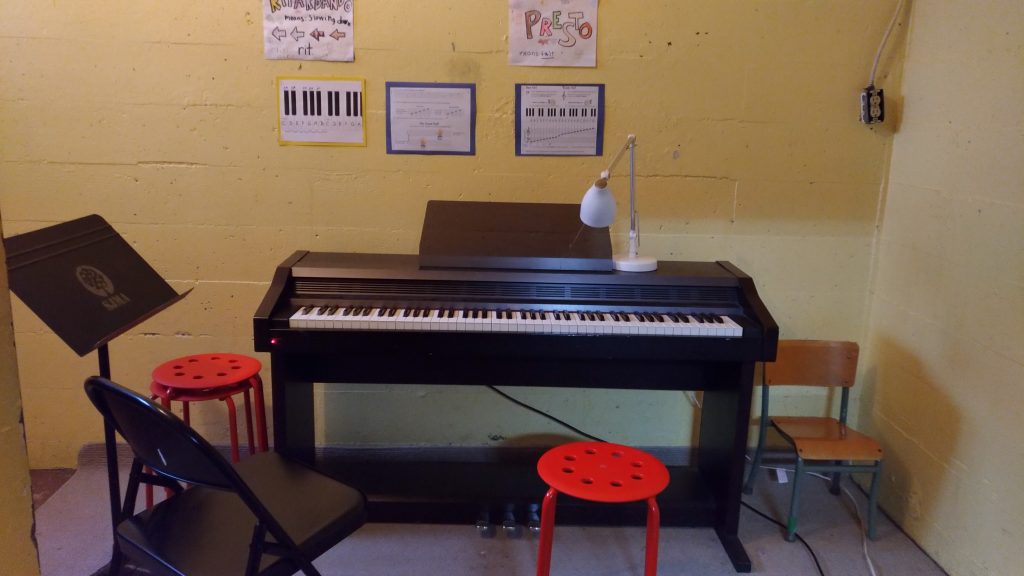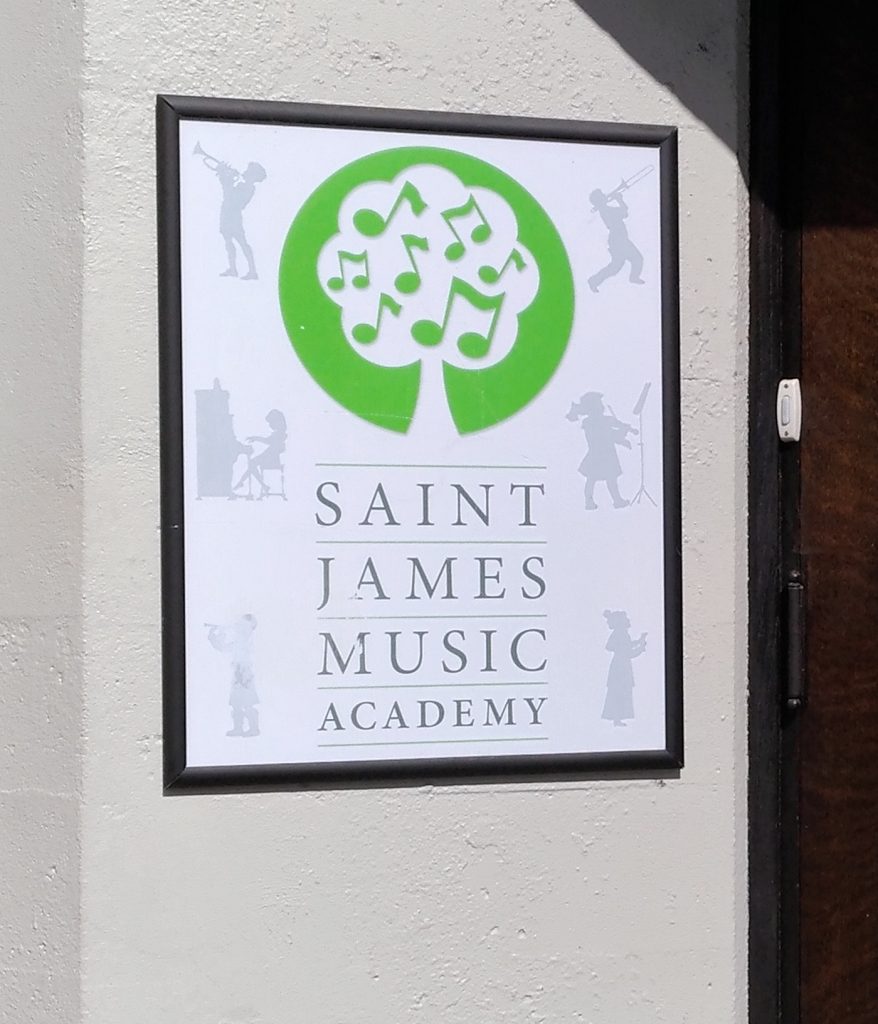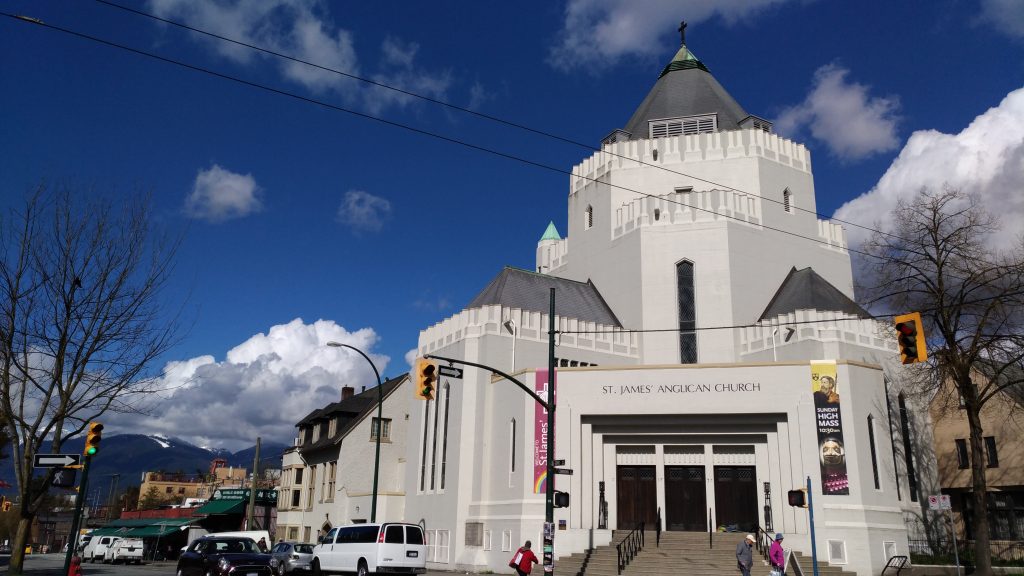Hello, future CAP Global Citizens student,
Are you unsure of whether you should go for the Trek or discussion pathway? In this blog post, I will tell you about my Trek experience. In doing so, I hope that I can address some of your questions and worries, and leave it up to you to decide whether Trek is the option for you.
- My Trek Placement
My TREK placement was St. James Music Academy (SJMA) in Downtown East Side (DTES) – a neighbourhood that is largely low-income, and facing many social problems of unemployment, poor living conditions, crime, substance abuse, and gentrification. SJMA offers free music lessons to children in the neighbourhood. My volunteering position was initially as an orchestra assistant, but I was later resigned to teaching one-to-one piano.
Below are three pictures that I took of SJMA, and my piano room.



- What would I tell a future CAP student about your Trek Experience?
I was so pleased that there was the TREK volunteering option as part of the CAP Sociology course – since I was planning to find opportunities regardless. My reason for volunteering has always been about connecting with the broader local community, and a desire to see first-hand, and gain better understanding of societal issues. As budding sociologists, it is important to be connected to the field and not stay in an armchair.
Volunteering at SJMA had been instrumental in increasing my understanding of societal issues. It placed me into direct contact with the DTES neighbourhood and its people that I would otherwise have little reason to go to. I became acquainted to the rundown state of the area, encounter the people (on the bus or streets, e.g. somewhat brash manner, cleanliness), occasional smell of marijuana – all surface manifestations of underlying social issues and life struggles that forced them to tough up.
SJMA presents to me as a little oasis of positivity and hope. I enjoyed my time there – spending time with the children, listening to the sounds of music… Knowing the challenges many of the children face (though often not salient), I hope that I was able to make a small impact in their lives.
- How did participation in Trek help me integrate into university? Into Vancouver?
TREK helped me integrate into, and navigate around university. TREK requires a day of workshop training early on in the year. This enabled me to become part of the TREK community and get to know my fellow CAP Trekkers. For example, it was often a good conversation starter in CAP when you asked your CAP classmates which pathway they planned to take. Or, when people ask what you’ve been up to, you have an interesting story to share from your TREK experiences. Since two of my CAP classmates were in the same placement as me, I got to know them better through shared experiences and commuting.
Joining TREK also helped me navigate the university. The TREK programme is coordinated by UBC’s Centre for Community Engaged Learning (CCEL). Being involved in this programme helped me become aware of the extra-curricular opportunities UBC has to offer. I know that CCEL is a resource I can seek help from, and who can redirect me to people or departments who can help.
More broadly speaking, participating in TREK helped me integrate into Vancouver. I am new to Vancouver – so researching, commuting, and walking to my placement helped me know the city better. Joining TREK connected me to the broader, local Vancouver community – beyond the non-representative population at UBC. I came to know Vancouver from meaningful conversations with the staff, volunteers and children at my placement.
- How did TREK support my learning?
TREK supported my academic/sociological learning as well as personal development.
Academic Learning
When I was making my decision between TREK or discussion, the main reason why I wanted to do discussion was because I wished to learn and be guided on how to write academically. However, I don’t think I missed out because the ASTU course in CAP guides us on scholarly reading and writing.
TREK complemented my studies in Sociology because I linked what I noticed from my real-life experiences to course content. TREK students have occasional discussions where we share and hear other classmates’ placement stories. This helped me know more about general societal issues and in Vancouver. These real-life experiences (either your own, or from someone you know) brings the issues much closer to you. It makes the course content more memorable and less abstract because you can relate to it.
Furthermore, I think Dr. Greer’s TREK reflective writing assignments were critical in supporting my learning. The prompts helped us process/focus on our experiences. It forced us to reflect on and find connections between class and our experiences. For one reflection, we had to interview our volunteer coordinator to understand the challenges my placement organisation face. The assignment gave me a good reason to ask deeper questions that I would otherwise feel like I’m prodding. The interview enabled me to hear from an insider/the other’s point of view, and I gained greater insight into what is happening in the city that I would otherwise not know about.
Personal Learning
I became more aware of my personal strengths and weaknesses, and areas for continual growth through volunteering. Only by facing real life situations and people will one realise how one stands. Skills were also developed – for example, I encountered many different types of people and had to experiment with different skills to respond to each of them.
I hope you were able to take something out of my post. Thank you for reading, and I wish you all the best in your first year at university.
Melody